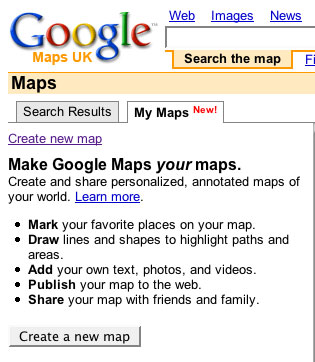
Doesn’t really work, but worth trying. Sigh.


Doesn’t really work, but worth trying. Sigh.

The latest thing from Google.
I’ve always liked Sam Goldwyn, the movie boss, if only for the charmed way he mangled the English language. He arrived in the US from Poland as Schmuel Gelbfisz, a name deemed unpronounceable by the US immigration official who dealt with him and promptly renamed him Goldfish. He then formed a partnership with a guy called Selwyn, and changed his name by combining the first half of Goldfish with the second half of Selwyn. (Wags later reasoned that if he’d done it the other way round he would have wound up as Selfish.)
Some of the stories about him are incomprehensible without footnotes. Take this one from Lillian Hellman’s memoirs:
At a postwar banquet for Field Marshal Montgomery, Goldwyn rose and proposed a toast to “Marshall Field Montgomery”. After a stunned silence, Jack L. Warner corrected him, “Montgomery Ward”.
Footnote 1: Marshall Field was (maybe still is, for all I know) a prominent Chicago Department Store.
Footnote 2: Montgomery Ward was a leading US mail-order chain.
Hellman also recounts a time when the head of his script department told him that the studio would be unable to film her play The Children’s Hour because it dealt with lesbians. “OK”, Sam said, “we make them Albanians”.
(Details courtesy of The Guinness Book of Humorous Anecdotes, edited by Nigel Rees.)
From BBC NEWS…
Music giant EMI is taking software locks off its digital music sold via download sites such as iTunes.
The “premium” versions of EMI tracks will lack the digital locks common to songs available via many online sites.
The move is significant because most download sites currently try to limit piracy by restricting what people can do with music they buy.
Apple’s iTunes store will start selling the EMI tracks in the “premium” format in May, with other services to follow.
Smart move. I’ll pay extra for DRM-free tracks and I suspect many other consumers will too.
TiSP. See here for a detailed guide.
Google TiSP (BETA) is a fully functional, end-to-end system that provides in-home wireless access by connecting your commode-based TiSP wireless router to one of thousands of TiSP Access Nodes via fiber-optic cable strung through your local municipal sewage lines.
Not anything like as subtle as Gmail Paper. Aimed at the 5- to 9-year-old male market I’d guess.
At last! A technical advance the rest of us can relate to.
A New Button
Now in Gmail, you can request a physical copy of any message with the click of a button, and we’ll send it to you in the mail.Simplicity Squared
Google will print all messages instantly and prepare them for delivery. Allow 2-4 business days for a parcel to arrive via post.Total Control
A stack of Gmail Paper arrives in a box at your doorstep, and it’s yours to keep forever. You can read it, sort it, search it, touch it. Or even move it to the trash—the real trash. (Recycling is encouraged.)Keep it Secret, Keep it Safe
Google takes privacy very seriously. But once your email is physically in your hands, it’s as secure as you want to make it.
“But what about the environment?” I hear you cry. They’ve thought of that too.
But what about the environment?
Not a problem. Gmail Paper is made out of 96% post-consumer organic soybean sputum, and thus, actually helps the environment. For every Gmail Paper we produce, the environment gets incrementally healthier.
The really neat thing is that Quentin can use his fancy scanner to turn it all into PDFs.
Well, well. According to the Sunday Times, a newspaper,
ONE of Britain’s top independent schools is under police investigation over allegations of pupil bullying involving the use of internet images of torture, murder and child pornography.
Officers are examining computers taken from the school, in southeast England, for any evidence of such extreme websites being viewed.
They launched the investigation after being told that the bullying involved forcible restraint in front of computers while horrific images were brought up on screen by the perpetrators. The “cyber-bullying” is alleged to have happened on numerous occasions over a period of about a year.
I wonder which school that would be, now.
(Answer: when he’s Rupert Murdoch.) This morning’s Observer column…
Tom Anderson, the founder of MySpace, had – as of 9.42am on Friday 30 March – 167,144,385 ‘friends’. This is not because he is exceedingly sociable, but because anyone who signs up on MySpace automatically becomes one of Tom’s friends. By the time you read this, he will have another 500,000. (MySpace is adding 250,000 users a day.)
The MySpace concept of a friend may seem contrived, but is much closer to what a businessperson would describe as a ‘contact’. This may be why the corporate world is gazing anxiously at the social networking phenomenon and wondering if it has anything to offer. Two studies – by Forrester Research, a market research firm, and McKinsey, a consultancy – offer conflicting views…

On the afternoon this was taken, the tailback stretched for more than 10 miles.

These are on the window-sill above the kitchen sink!